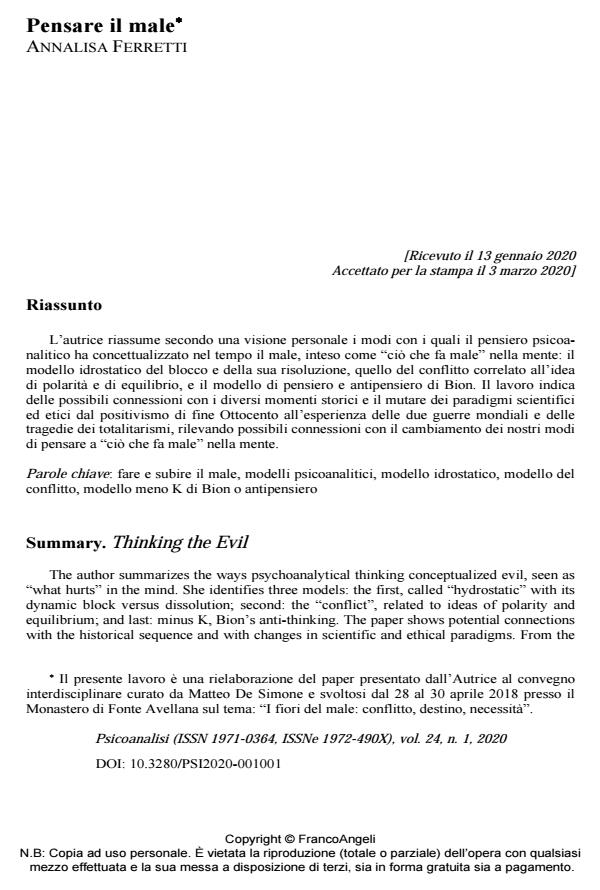Thinking the Evil
Journal title PSICOANALISI
Author/s Annalisa Ferretti
Publishing Year 2020 Issue 2020/1
Language Italian Pages 14 P. 5-18 File size 201 KB
DOI 10.3280/PSI2020-001001
DOI is like a bar code for intellectual property: to have more infomation
click here
Below, you can see the article first page
If you want to buy this article in PDF format, you can do it, following the instructions to buy download credits

FrancoAngeli is member of Publishers International Linking Association, Inc (PILA), a not-for-profit association which run the CrossRef service enabling links to and from online scholarly content.
The author summarizes the ways psychoanalytical thinking conceptualized evil, seen as "what hurts" in the mind. She identifies three models: the first, called "hydrostatic" with its dynamic block versus dissolution; second: the "conflict", related to ideas of polarity and equi-librium; and last: minus K, Bion’s anti-thinking. The paper shows potential connections with the historical sequence and with changes in scientific and ethical paradigms. From the positiv-ism of the late ’800s to the experiences of two World Wars and the totalitarian regimes and tragedies that followed, there are connections with how we perceive "what hurts" in our and other’s minds.
Keywords: To do and to suffer the evil, psychoanalytical models, hydrostatic model, conflict model, Bion’s minus K model
Annalisa Ferretti, Pensare il male in "PSICOANALISI" 1/2020, pp 5-18, DOI: 10.3280/PSI2020-001001